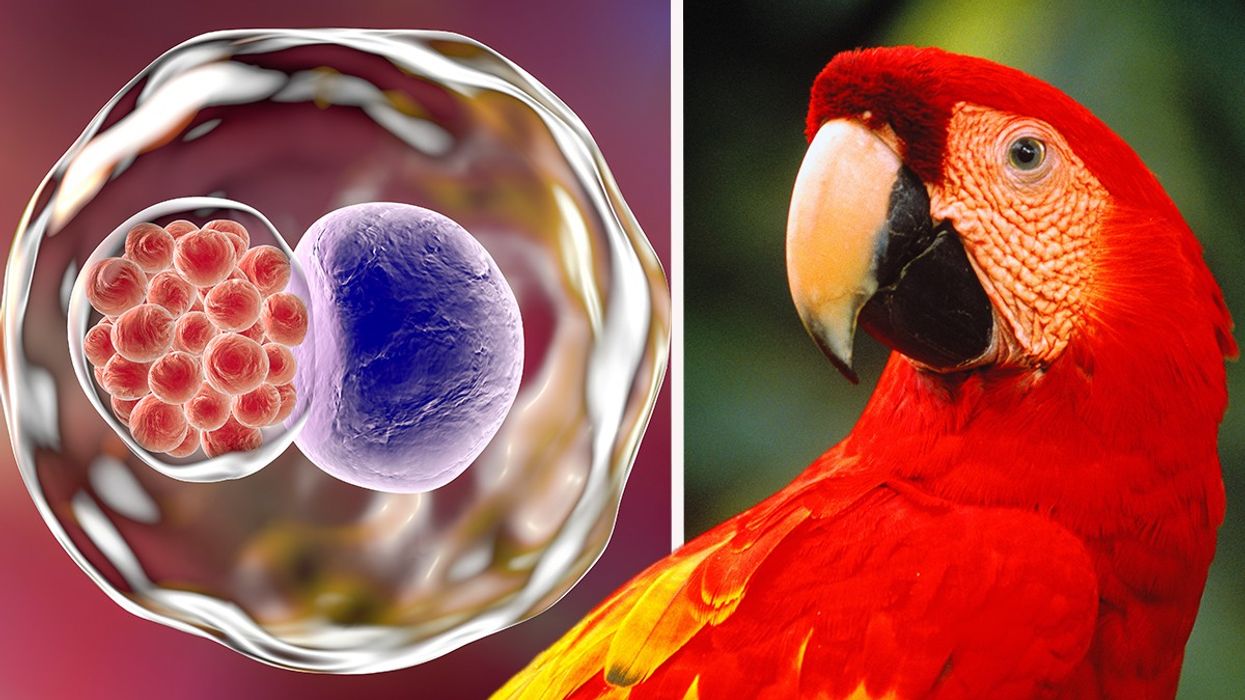Urgent health warning over 'parrot fever' as outbreak sweeping Europe leaves five dead and dozens hospitalised

At least five Europeans are dead following an outbreak of psittacosis on the continent
|Getty Images

- Psittacosis, also known as 'parrot fever', has killed five Europeans so far this year
- WHO continues to monitor the situation and determines the current risk is low
- Between 25 and 50 cases are confirmed in England and Wales each year
Don't Miss
Most Read
Latest
The World Health Organization (WHO) has issued an urgent health alert after four people died in Denmark while one died in the Netherlands and dozens more have been hospitalised across Austria, Germany and Sweden.
Psittacosis is an infection of birds caused by the bacterium C. psittaci. It affects up to 50 Britons each year, according to the UK Health Security Agency (UKHSA).
The disease has been described in many species of birds, particularly in parrots, parakeets, budgerigars and cockatiels.

Infections in birds are important as they represent a biological hazard to human health
|Getty Images
Birds can transmit the bacterial infection to humans through inhalation of airborne particles from respiratory secretions, dried faeces or feather dust.
Oral infection and handling of infected birds’ plumage and tissues are alternative routes.
Those at greatest risk of contracting the disease include bird enthusiasts and owners of pet birds. Pet shop employees and others whose occupation places them at risk of exposure (such as poultry slaughter-house workers, veterinarians, wildlife and zoo workers) are also at risk.
Because human infection can result from brief, passing exposure to infected birds or their dried contaminated droppings, people with no identified occupational or recreational risk can become infected.
In general, psittacosis is a mild illness, with symptoms including fever and chills, headache, muscle aches and dry cough.
Most people begin developing signs and symptoms within five to 14 days after exposure to the bacteria.
Prompt antibiotic treatment is effective and allows avoiding complications such as pneumonia. With appropriate antibiotic treatment, psittacosis rarely (less than one in 100 cases) results in death.
Psittacosis outbreak in Europe - what we know so far
Overall, five countries in Europe have reported an "unusual and unexpected" increase in reports of cases of parrot fever, according to WHO.

Symptoms include body aches and pains
|Getty Images
In Austria, where there are typically two cases annually, at least 14 were recorded in the final months of 2023, and four have been recorded as of March 2024.
Denmark generally sees between 15 and 30 annually, but as of Feb.27, it recorded at least 23 — 17 of which resulted in hospitalisations.
Since December 2023, the Netherlands has seen twice as many cases as is typical for the same time of year.
WHO recommends the following measures for the prevention and control of psittacosis:
- Increasing the awareness of clinicians to test suspected cases of C. psittaci for diagnosis
- Increasing awareness among caged or domestic bird owners, especially psittacines, that the pathogen can be carried without apparent illness
- Quarantining newly acquired birds. If any bird is sick, contact the veterinarian for an examination and treatment
- Conducting surveillance of C. psittaci in wild birds, potentially including existing specimens collected for other reasons
- Encouraging people with pet birds to keep cages clean, position cages so that droppings cannot spread among them and avoid over-crowded cages
- Promoting good hygiene, including frequent hand washing, when handling birds, their faeces, and their environments
- Standard infection-control practices and droplet transmission precautions should be implemented for hospitalised patients










